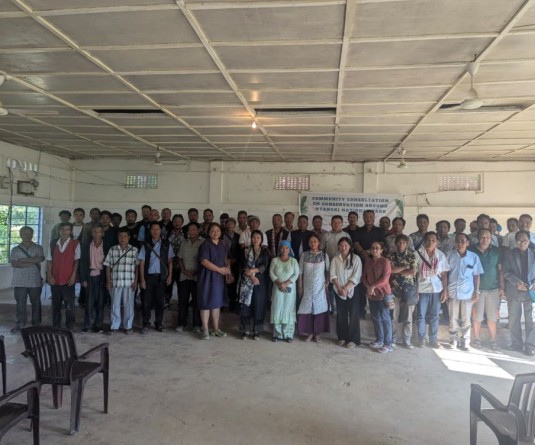
Dimapur, August 23 (MExN): The Rongmei Scholars’ Association (RSA) organised its inaugural talk online under the topic, “Writing the Oral: Folklore and Print Culture of the Rongmeis” on August 21.
Chairing the talk, the RSA President RSA, Dr Aphun Kamei, a Sr. Assistant Professor at Delhi School of Economics, said that the Association was formed in 2018 with the “aim to provide an academic platform, engage on issues pertaining to the Rongmei people, collaborate with research and academic institutions and such bodies across the globe.”
He also invited all Rongmei scholars to work together in the future.
The main speaker of the talk, Dr Senganglu Thaimei, an Associate Professor of English at Miranda House, Delhi University, encompassed a detailed description and analysis of Rongmei literature from the beginning up to the present, using the findings from her research in the subject.
She informed that there are over 250 books written and printed in the Rongmei language and she maintains a catalogue of all these books which she had been curating for over 10 years.
These important books, most of which are out-of-print or long forgotten, were mostly published independently starting from the third decade of the 20th century, a press release from RSA informed.
To trace these books and understand the context, she divided her talk into three sections: the emergence of Rongmei literature, Rongmei folklore in print, and the evolution and present state of their literature, it said.
Thaimei made a mention of many important individuals and their works which are crucial to the development of Rongmei literature, giving the participants a clear picture of its history and progress, it added.
As writing is a political act, Rongmei literature itself was a form of socio-political resistance to different dangerous forces, she added in her disposition on community members writing history.
Thaimei further classified the chronological development of Rongmei literature into three broad phases: formative, descriptive and analytical phases and appealed that Rongmei people now have to proactively work in the analytical creation and development of Rongmei literature, it added.
During the Q&A session, through the queries of around eight participants, topics like oral tradition vis-à-vis literature, Meitei influence of Rongmei literature, Zeliangrong movement, Rongmei morality, and orthography and standardisation of Rongmei language were discussed ,the release added.





